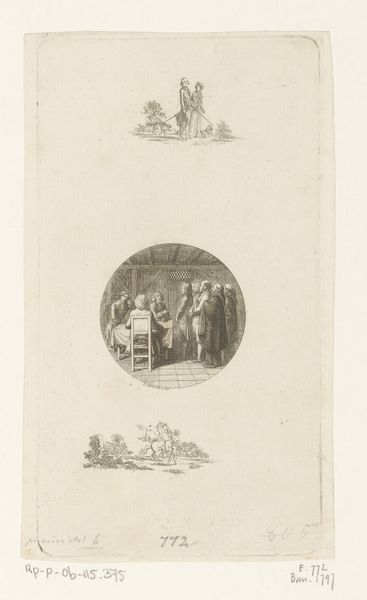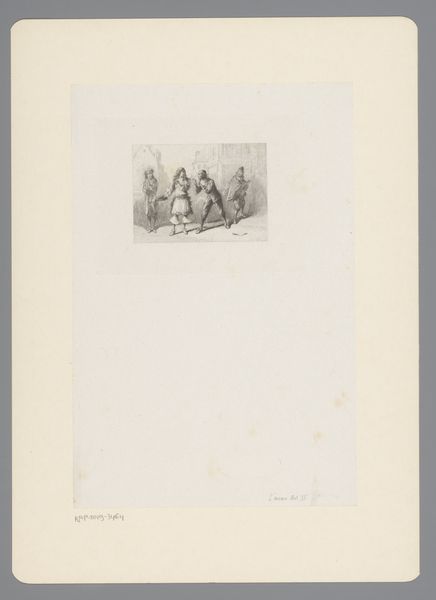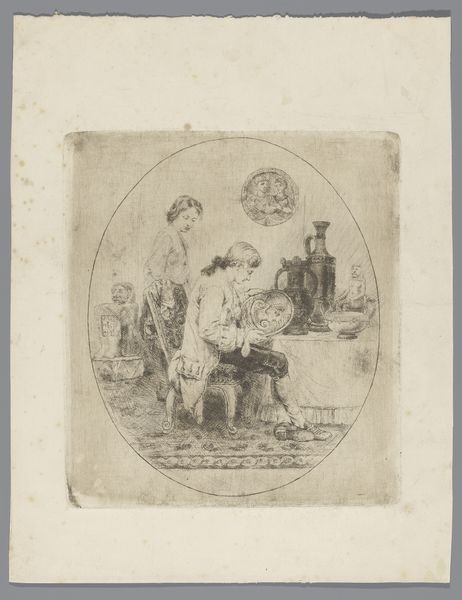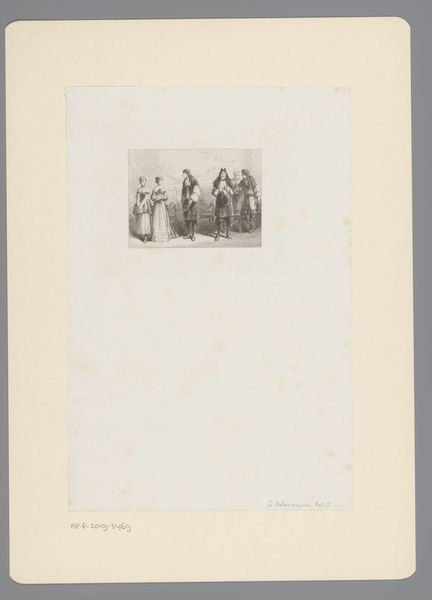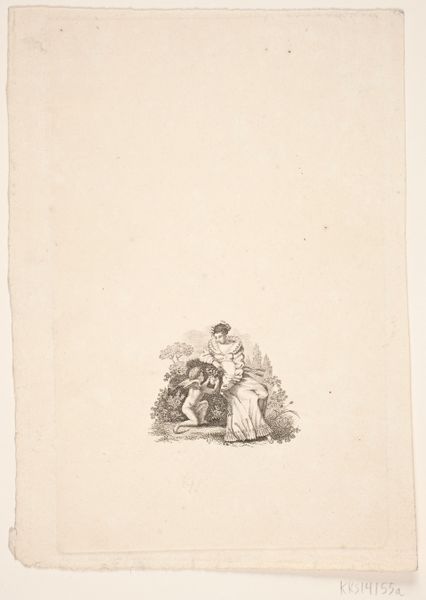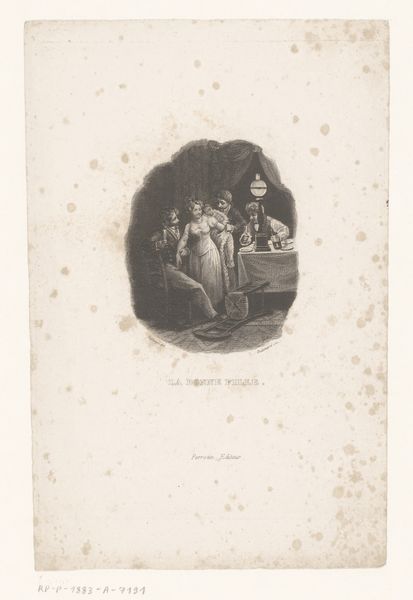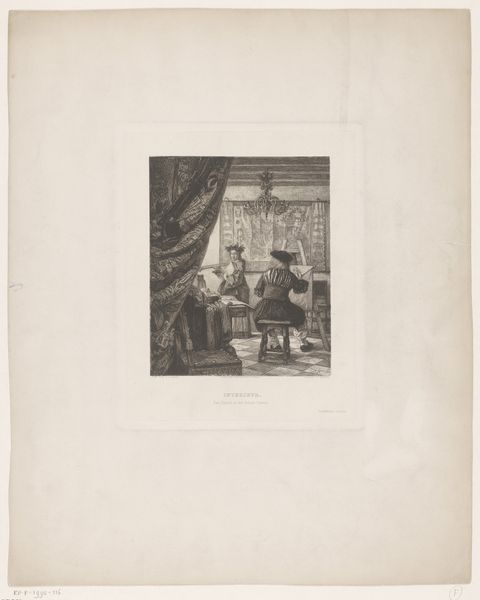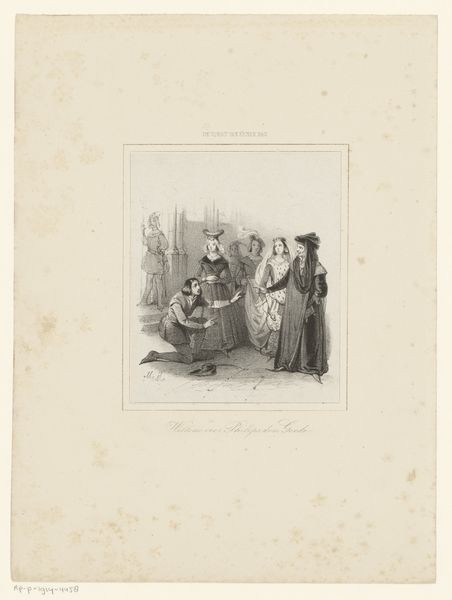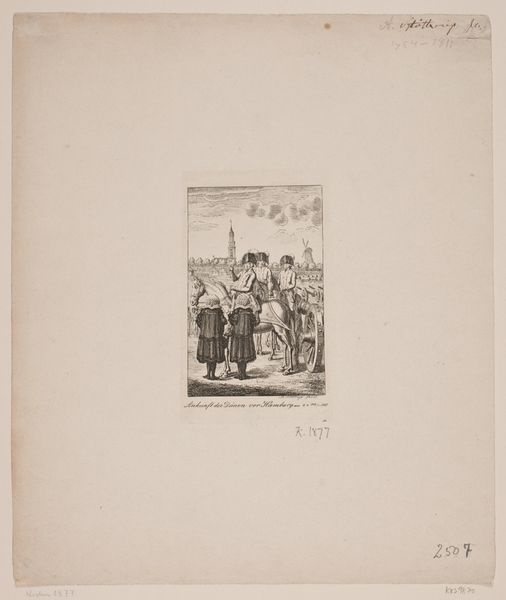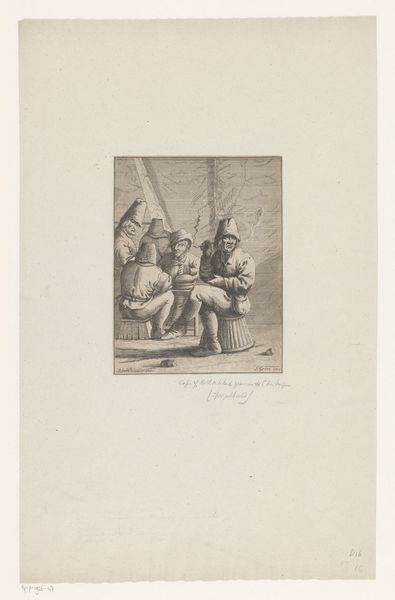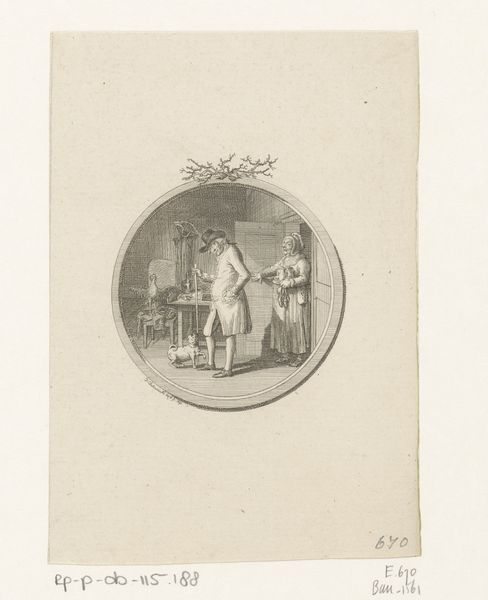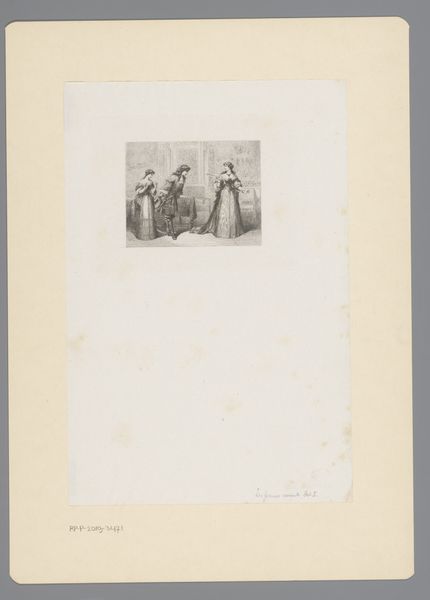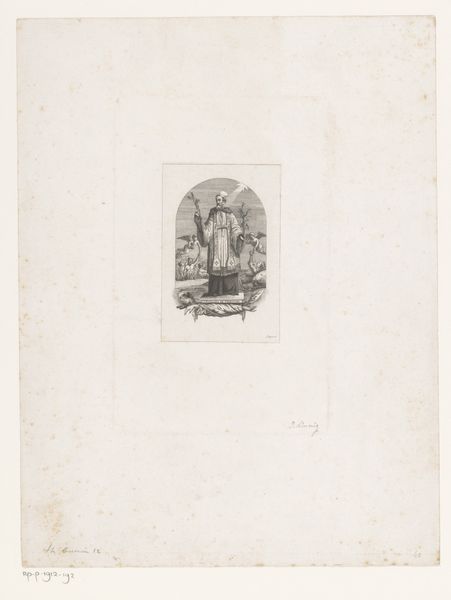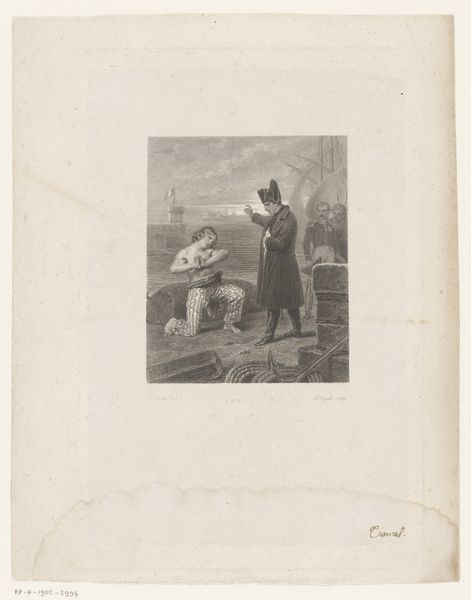
drawing, pencil
#
portrait
#
pencil drawn
#
drawing
#
pencil sketch
#
pencil
#
genre-painting
#
academic-art
Dimensions: height 221 mm, width 202 mm
Copyright: Rijks Museum: Open Domain
Curator: This drawing by Willem Linnig II, dating to 1881, depicts a scene titled "Kunstliefhebber bestudeert antiek porselein en aardewerk" – that translates to something like "Art Lover Examining Antique Porcelain and Pottery". Editor: Ah, my initial sense is one of hushed intensity – that delicate pencil work gives it an almost clandestine feel, like we’re peering into a private passion. A still, intimate moment captured. Curator: It is that, isn’t it? Genre painting experienced a real resurgence in the 19th century. Here, Linnig gives us this very intimate, seemingly unposed scene of a well-to-do gentleman absorbed by a porcelain piece while his attendant looks on. It gives us a window into the lifestyle and the material fascinations of the bourgeoisie. Editor: I can almost feel the chill of the drawing room; you can practically see the candlelight glinting off those ceramics. Linnig definitely uses pencil to emulate an etching. What’s also striking is the ovoid format – an archaizing reference to the decorative arts of the period that both men appreciate. Do you get the sense he approves or disapproves of their obsession? Curator: That's an interesting question! The detail he invests in capturing their activity is telling. Linnig certainly invites the viewer to find pleasure in that culture. Note the meticulous depiction of the objects - all tangible proof of connoisseurship, emblems of status and refined sensibility in 19th-century society. Collecting was serious business! Editor: Yes, serious indeed. I keep thinking about all these objects - not only antiques but commodities and assets! And how class dynamics are implied with that quiet figure at the rear... This drawing certainly invites plenty of quiet speculation on both style and wealth. Curator: Absolutely! Linnig encapsulates this world in such exquisite miniature – quite the commentary on desire, and how objects reflect—and define—us. Editor: Well, next time I'm dusting my porcelain, I’ll think about Linnig, and how something seemingly static is so utterly full of life.
Comments
No comments
Be the first to comment and join the conversation on the ultimate creative platform.
